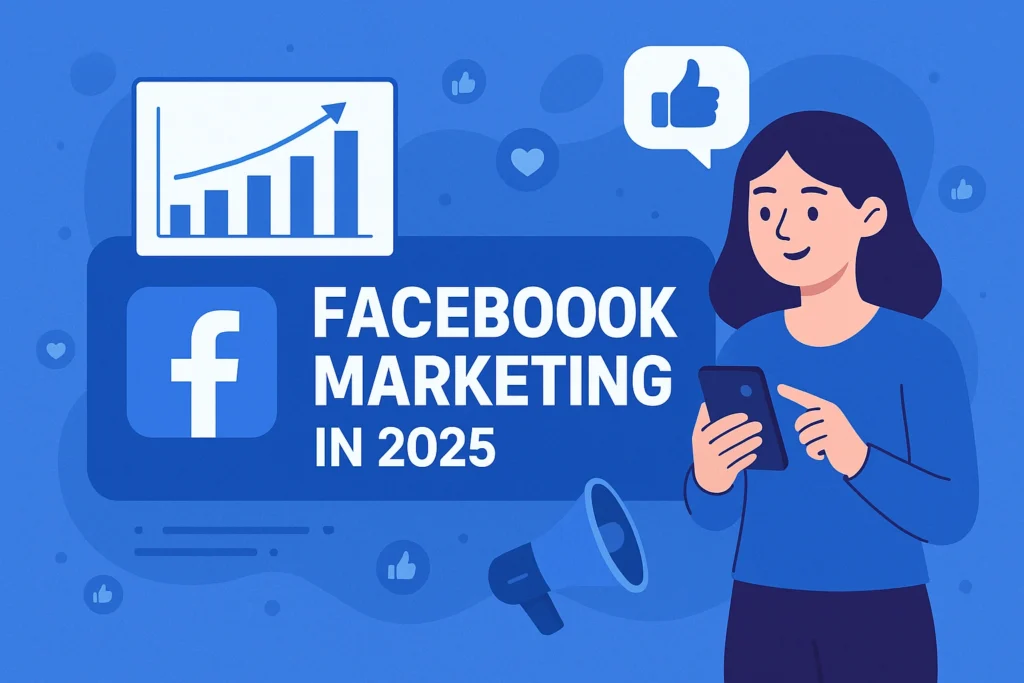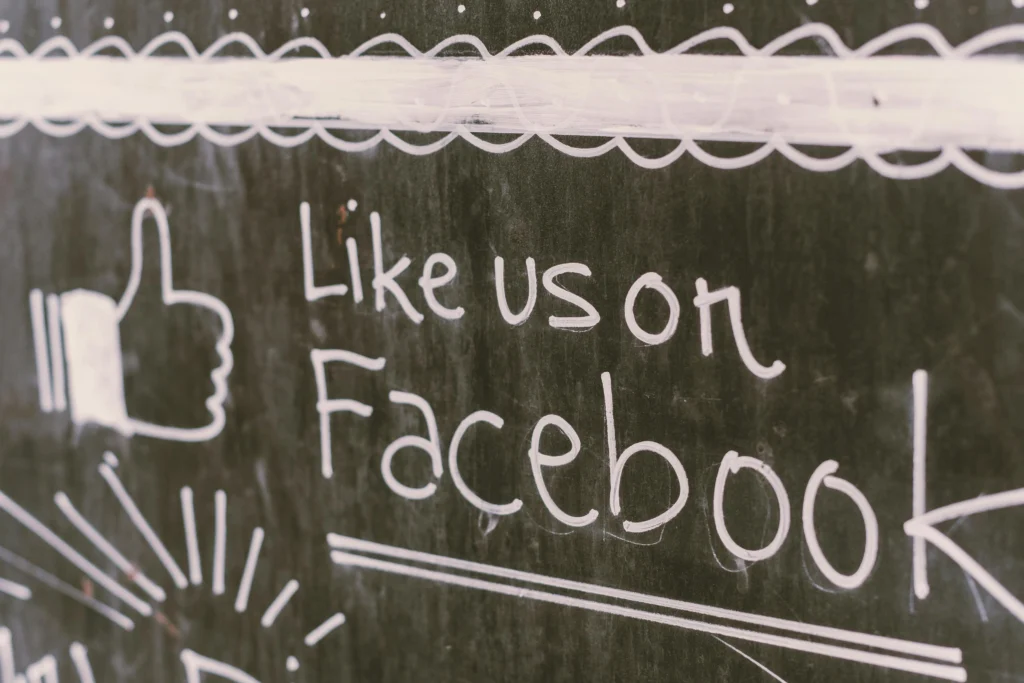No products in the cart.

In the constantly shifting world of digital marketing, Facebook remains a cornerstone of online engagement and business growth, even as we move into 2025. Despite the emergence of newer platforms and changing algorithms, Facebook has continued to evolve, ensuring it remains relevant and results-driven for marketers worldwide. Businesses—especially in fast-growing digital economies like the Philippines—are now leveraging advanced Facebook strategies to deepen customer relationships, improve engagements in social media, and ultimately drive conversion and revenue.
This comprehensive guide explores the state of Facebook marketing in 2025, practical strategies businesses can adopt, key trends influencing user behavior, and how your brand can capitalize on this mature yet innovative platform.
Facebook, now under the Meta umbrella, boasts over 3.07 billion monthly active users as of early 2025, according to internal projections from Meta and industry research by Statista. More than 200 million businesses use Facebook tools monthly, and approximately 10 million actively use Facebook Ads to reach target audiences. This massive user base and advertiser presence underlines Facebook’s status as a critical platform in global digital marketing strategies.
In the Philippines, Facebook continues to dominate as the most widely used social media platform, with over 95% of Filipino internet users reporting active Facebook use as of 2024. This positions Facebook not just as a place for casual interaction, but as a crucial hub for digital commerce and customer engagement, especially as trends today in the Philippines lean toward mobile-first consumption, video content, and community-based social experiences.
By 2025, Facebook’s algorithm prioritizes authentic engagement more than ever. Content that sparks meaningful interactions—especially comments, shares, and saves—is rewarded with higher visibility. The algorithm increasingly incorporates AI and machine learning models to better understand user preferences and predict which content will hold their attention. This means brands must focus less on vanity metrics like raw reach or impressions and more on producing content that fosters dialogue and emotional connection.
The rise of “Interest Clusters,” a new AI-driven audience segmentation tool launched by Meta in late 2024, has also changed the game. This tool allows marketers to target audiences based on nuanced behavior patterns rather than standard demographics or interests. For example, a brand selling eco-friendly apparel can now target users who consistently interact with sustainability content, donate to environmental causes, and follow zero-waste groups.
In 2025, Facebook has doubled down on immersive and short-form content. Facebook Reels, the platform’s answer to TikTok’s success, now generates more than 200 billion views per day globally, according to Meta’s internal Q1 2025 report. This vertical video format, often under 60 seconds, is optimized for mobile users and heavily prioritized in users’ feeds.
Interactive Stories remain a staple for ephemeral content, while 3D posts and augmented reality filters are increasingly used by e-commerce brands to offer product previews and immersive try-ons. Live Video, too, is seeing a resurgence, especially in product launches and influencer-led commerce events. Meta reports that live video receives 3x more engagement than standard video content, making it a key tool for brands aiming to drive real-time interaction and conversions.
For businesses, embracing these formats isn’t just about following trends—it’s about aligning with how users consume content today. Whether you’re a local café in Cebu promoting new menu items or a national retailer running a product drop, tapping into native Facebook video and AR tools can vastly amplify engagement and sales.
Facebook Messenger, combined with AI-powered chatbots, is now a dominant force in customer service and sales. Over 1 billion messages are exchanged between people and businesses every week on Messenger. In 2025, many brands integrate chatbots with dynamic product catalogs and conversational AI to simulate a seamless shopping assistant experience.
This is especially effective for B2C and social media marketing for B2B firms that deal with complex service offerings. A B2B digital agency, for instance, can use Facebook chatbots to qualify leads, book consultations, or offer instant downloadable guides directly within Messenger.
With WhatsApp and Instagram messaging now integrated into Facebook’s Business Suite, companies can maintain consistent and real-time communication across all Meta-owned platforms—a huge leap forward in omnichannel customer support.

Meta’s advertising suite in 2025 is significantly more intelligent and efficient than in previous years. With iOS privacy restrictions and growing concerns over user data, Facebook has shifted to a privacy-first model without compromising ad performance. Enhanced Conversion API (CAPI) integration now enables server-side tracking that is compliant with data regulations while providing marketers with more accurate conversion insights.
Facebook’s Advantage+ campaigns are AI-driven and automatically optimize placements, creative assets, and audience segments in real time. According to Meta’s case studies, these AI-powered campaigns improve ROAS (return on ad spend) by 15–30% on average compared to manually optimized campaigns.
Small businesses benefit greatly from Facebook’s continued focus on automation and budget flexibility. Even with modest ad spends, brands can access world-class tools for split testing, creative analysis, and retargeting.
With rising digital literacy in rural and provincial areas in the Philippines, businesses are now leveraging hyper-local marketing strategies on Facebook. Tools like Facebook Groups, Events, and Nearby Places allow businesses to tap into community networks and build trust with regional audiences.
Community marketing—where brands participate in and support interest-based groups—has proven to foster greater loyalty than traditional advertising. In fact, a recent HubSpot survey found that 76% of users trust content shared in Facebook groups more than traditional brand content. For Philippine SMEs, joining or creating groups based on shared local interests—whether about sustainable farming, local travel, or regional cuisine—can become a goldmine of trust and engagement.
Facebook Shops and Instagram Checkout have merged into an upgraded Meta Storefront, which allows users to browse, review, and purchase products directly within the Facebook app. With integrated logistics partnerships and payment gateways now available in Southeast Asia, the barriers to entry for e-commerce sellers have never been lower.
Filipino entrepreneurs and online sellers are especially active here. A study by DataReportal in 2024 found that more than 70% of Filipino Facebook users have made a purchase through the app—a number expected to grow steadily. Facebook Marketplace, too, continues to thrive, offering a peer-to-peer commerce platform that is particularly popular among C2C sellers and freelancers.
As e-commerce matures in the region, Facebook is strategically investing in influencer-driven commerce, product tagging in Reels, and affiliate marketing tools. These features enable both small influencers and large retailers to monetize content while simplifying the customer journey.
AI integration in Facebook marketing is no longer a niche feature—it’s central to how the platform operates. Marketers can now use predictive analytics to identify purchase intent and behavior patterns before users even express them. Meta’s AI tools can predict the best times to post, ideal creative formats per audience segment, and even suggest automated headlines for higher click-through rates.
Marketers using Meta’s predictive tools see a 32% increase in lead quality, based on Meta’s early 2025 performance data. These tools are particularly powerful in social media marketing service strategies, where efficiency and ROI are key performance metrics.
As AI gets better at mimicking human interaction, brands will need to strike a balance between automation and authenticity. Trust remains a central currency in social media, and brands that combine data-driven personalization with transparent messaging will win.
Despite these advancements, Facebook marketing in 2025 isn’t without challenges. Data privacy remains a concern for many users, and brands must comply with both local and global data regulations such as the Data Privacy Act of the Philippines and the GDPR.
Moreover, the saturation of sponsored content means that authenticity has never been more valuable. Audiences are more discerning and skeptical of overtly promotional content. Brands need to invest in storytelling, user-generated content, and real human voices to cut through the noise.
In the trends today Philippines context, mobile-first behavior continues to shape marketing strategies. Over 80% of Facebook users in the Philippines access the platform exclusively through mobile devices. Video, voice search, and vernacular content in Tagalog, Bisaya, and other regional languages are becoming more prevalent as brands strive for deeper resonance with local audiences.
The rise of digital freelancers, influencers, and content creators has also fueled a creator economy where small players can gain massive traction with niche audiences. Businesses that collaborate with local creators or empower employees as brand advocates are seeing higher ROI and more authentic customer relationships.
Facebook in 2025 remains one of the most powerful platforms for business growth—provided brands are willing to adapt. From immersive video formats and AI-powered ads to hyper-local engagement and ethical data use, success on Facebook today means being smarter, faster, and more human.
As businesses around the world and here in the Philippines evolve their digital marketing strategies, Facebook stands as both a tool and a partner in reaching new audiences, building lasting communities, and generating real results.
Ready to grow your business with expert help in Facebook marketing? Whether you’re looking for a full-service solution or tailored support for your B2B brand, Ensight Digital offers the best in social media marketing service and strategic social media marketing for B2B growth.
Let’s turn your followers into loyal customers—contact us today to get started!

This practical guide is for Philippine SMEs looking to maximize their presence on Google. It provides actionable tips on how to get found locally by optimizing your Google Business Profile , understanding the basics of SEO for your website , and using Google Search Ads to supercharge your reach. The guide also covers how to track your success using Google's free tools.
Public Safety Alert: Fraudulent Investment Schemes Misusing the "Ensight Digital Marketing" Name Learn more